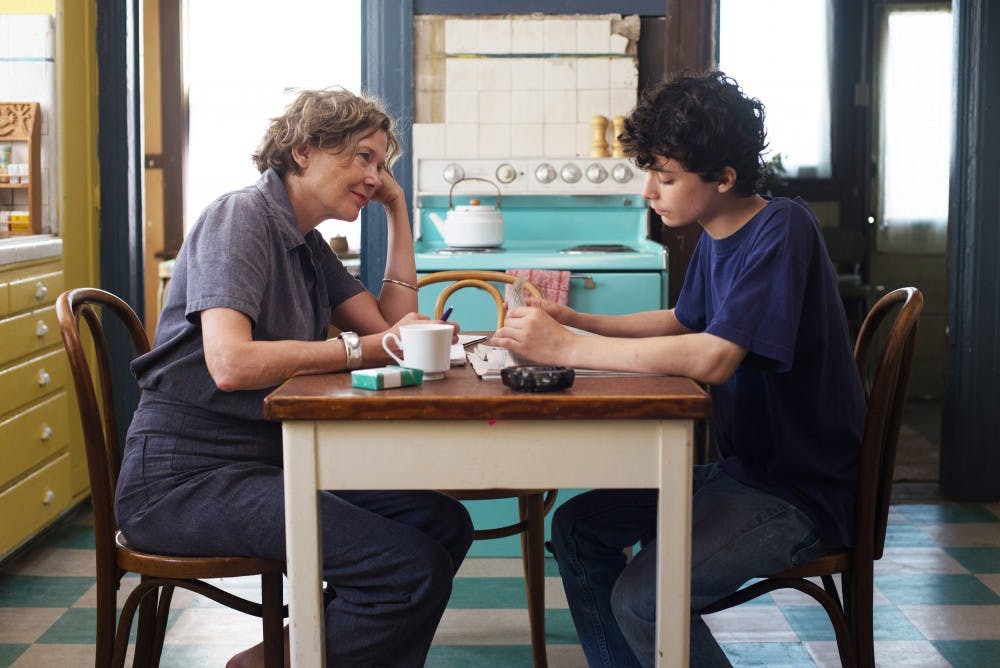Director: Mike Mills
Runtime: 1 hour, 59 minutes
Release Date: Jan. 20
Rating: A
Women rule, culture is in a state of flux, and ‘70s punk is thriving in “20th Century Women" — director Mike Mills’ fresh-faced lyric poem to relationship and identity set in a groovy, circa-1979 Santa Barbara.
Dorothea Fields (movingly portrayed by Annette Bening) is a single mom with one foot in the past and one in the future. She wants to raise her teenage son Jamie (Lucas Jade Zumann) to be a good man, but she isn’t even sure what that means anymore. Together with houseguests William (Billy Crudup) and Abbie (Greta Gerwig) and family friend Julie (Elle Fanning), Dorothea ponders the evolving relationship between mothers and sons, aging women and an adapting world, and youth and revolution as the five form a non-biological family and discover their own destinies.
It’s only fitting that this film opened in wide release when it did — on the inauguration day of a man who has had one of the most controversial campaigns in regards to gender equality in our history and on the eve of a historic, global women’s march — because the film is not as much about the progression of a plot as it is about the progression of women’s rights, the representation of women and the identity of the male feminist.
While the film is technically centered on the shifting values of the 1970s, it has unlimited cultural relevance in 2017. With competent, authentic characterizations and performances, this film joins the ranks of the oh-too-few cinematic marvels that actually manage to represent women in their full complexity. The women here are flawed and funny and intelligent and sensual and beautiful and masculine and feminine — just as females are in real life. They are not put on a pedestal, and they are not degraded. Instead, they are presented tangibly, as directors have been presenting men in film for decades.
Dorothea, Abbie and Julie are not petty, and they are not pitted against each other in the all-too-common “cat fight” illustration. Their bodies are beautiful but not for men, and neither is their sexuality. While they dance their way through the 1970s to a soundtrack by Roger Neill that flawlessly juxtaposes classic jazz and vintage punk, they discover truths about femininity and their purposes in the world that are just as pertinent to women young and old today.

The film explores in detail the subtleties of the many roles that women play in the world. How is one a good mother? What does sisterhood look like, and female morality? What does it mean to be infertile, or possibly pregnant? How do women party, dance, have careers and express themselves emotionally, sexually and creatively?
In the tradition of true equality, when it is realized that sexism harms both men and women, the film doesn’t let gender limit its exploration of identity. The film also discusses what it means to be a “good man,” focusing on the fact that a man’s goodness can also be determined by his lack of sexism, and, thus, his feminism. Jamie and William are more sensitive than some of the men often seen on screen. Jamie ponders how to love and how to give as much as he receives in a relationship — valuable lessons for men in 2017.
Aside from its realistic discussion of these values and functions of gender and personal goodness, “20th Century Women” has one other core theme — that of motherhood, both biological and otherwise.
Jamie is Dorothea’s utmost concern, and Bening captures incredibly well the worries, sacrifices and disappointments that all mothers face. Aside from Dorothea, we see Abbie and Julie become mothers to Jamie as well. They might not be blood relatives or biological parental units, but there is a love and closeness in their relationships with him that proves the ability of anyone to mother or be mothered, father or be fathered, love and be loved.
A landmark development in the arduous fight for quality female representation on screen, Mike Mills’ latest is filled to the brim with universal truths without getting preachy. This film explores without lecturing, empowers without rhetoric and unifies without theology. It takes '70s rebellion, The Pill, second-wave feminism, the Talking Heads, the Great Depression and an old Ford Galaxy and translates them into something inspiring, equal and modern.
“20th Century Women” may take place in the 1970s, but it’s one of the most modern films of the past decade in its worldview and representation. The film is a truly refreshing portrait of femininity, masculinity, family, equality and love that 21st century women — and men — shouldn’t miss.

